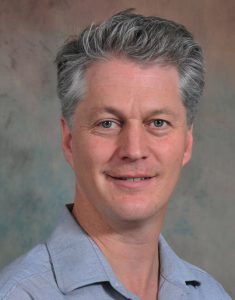A division of the Behavioral Neuroscience Research Branch
Section Chief
Contact
Location:
Biomedical Research Center
251 Bayview Blvd
Suite 200, Room 06A719
Baltimore, MD 21224
Phone: 667-312-5151
Email: bhope@mail.nih.gov
About the Lab
When using drugs of abuse, learned associations are formed between the drugs and stimuli present in the drug-taking environment. With continued use, these stimuli can become cues that promote drug relapse. Our research is focused on figuring out how these memories are stored in the brain. We have identified sparsely distributed patterns of neurons in the brain called ‘neuronal ensembles’ that are selectively activated by drug-related cues and thought to encode the learned associations that mediate drug seeking behavior. Drug-related cues activate specific genes such as Fos within these neuronal ensembles that allow us to identify them in the brain. We exploit the Fos promoter to turn on different transgenes in transgenic rats that allow us to manipulate specific neuronal ensembles and assess their role in drug-related memories. We also developed a fluorescence-activated cell sorting (FACS) procedure for purifying these activated ensembles and found unique molecular alterations within their cell bodies and synapses. We developed novel Fos-GFP transgenic rats that produce green fluorescent protein (GFP) in activated neurons and found unique synaptic alterations using slice electrophysiology. We are now advancing these studies with the use of calcium imaging and irreversible calcium-dependent labels to examine the relationship of ensembles identified by calcium influx with ensembles identified by Fos expression. Overall, we use combinations of novel viruses and transgenic rats to search and characterize drug-related memory engrams in the brain that control drug relapse.

